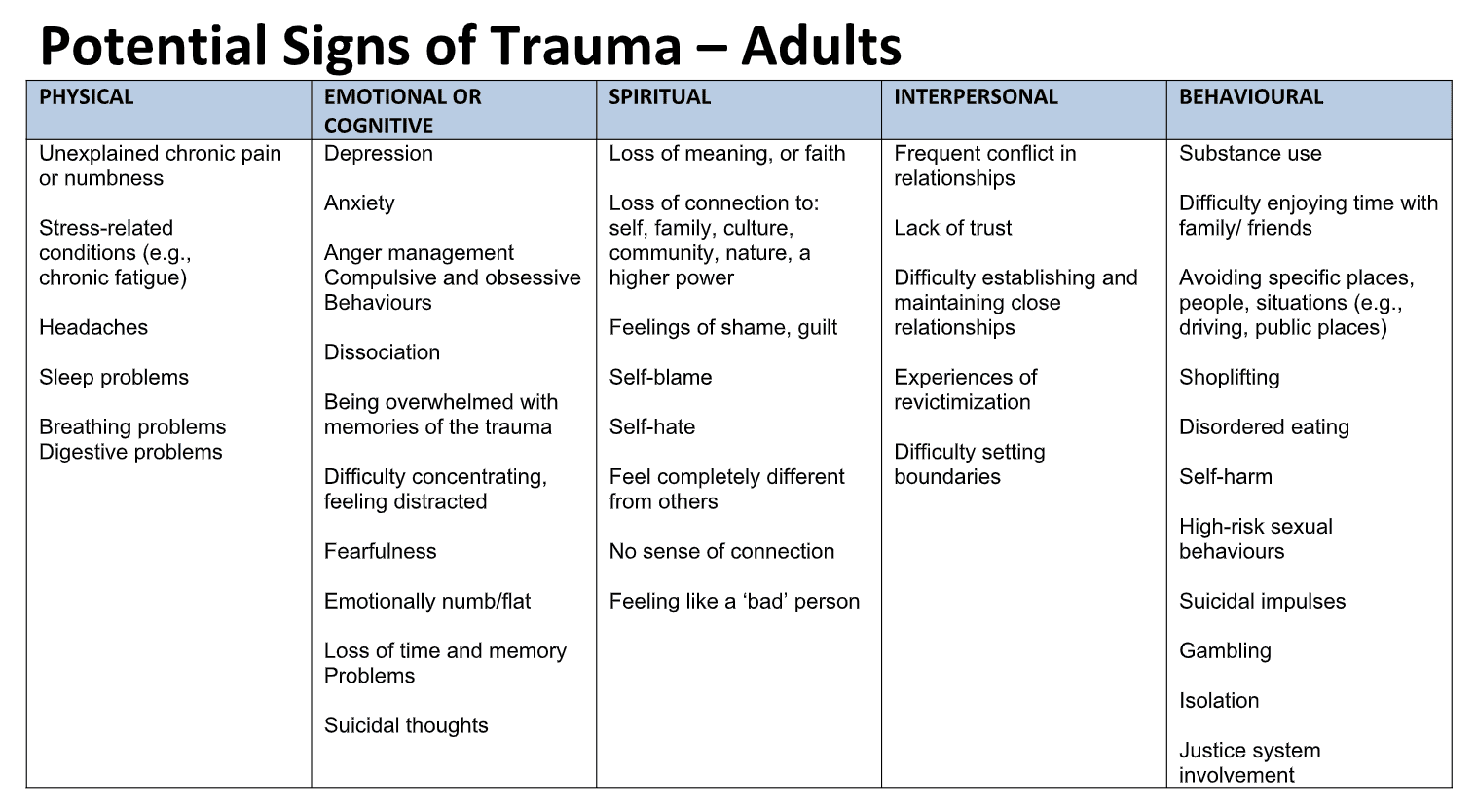“Trying to implement trauma-specific clinical interventions without first implementing trauma-informed cultural change is like throwing seeds on dry land” - Sandra Bloom
What Is Trauma Informed Practice?
Sometimes referred to as “trauma-sensitive”, “trauma-focused” or “trauma-infused” this term is used to describe the way that an organization/system/individual responds to trauma and adversity. Anyone can adopt a trauma-informed practice approach to their work by applying the trauma-informed principles of safety, trustworthiness, choice, collaboration, empowerment, culture, history and gender, in their interactions with clients.

Trauma Specific Intervention
Evidence-based and promising practices that facilitate recovery from trauma offered by someone educated, trained and or certified in the approach. Examples of trauma-specific interventions are such approaches as Trauma-Focused Cognitive Behavioural Therapy or Eye Movement Desensitization Reprocessing (EMDR), Seeking Safety etc.

Trauma Informed Implementation
Strong leadership is the key to successful trauma-informed care implementation. Funders, Boards of Directors, Administrators and people with lived experience are called upon to champion the change that will involve all levels of program, organization or system. Strong, positive, visible leadership at the CEO/ED level is essential.
Trauma-informed care implementation requires both financial and in-kind resources. It is not the type of change that can be done “off the side of a desk”. Budgets for reallocating leadership and implementation team members to the change process are essential. Funding for training, consultation, systems/procedural changes, policy reviews, communication and marketing are needed.

Trauma Informed Toolkits
IMPLEMENTATION TOOLKITS
An implementation “toolkit” is an essential resource for policy and decision-makers, program/organization/system leaders, and practitioners, on current knowledge and standards of trauma-informed care with practical examples from others with experience in implementation.
AGENCY SELF ASSESSMENT
Before starting to implement a trauma-informed approach it is widely recommended that an organization measure what you do already. A self-assessment that can be used to identify your strengths and help you focus on the actions required to become a trauma-informed organization.
